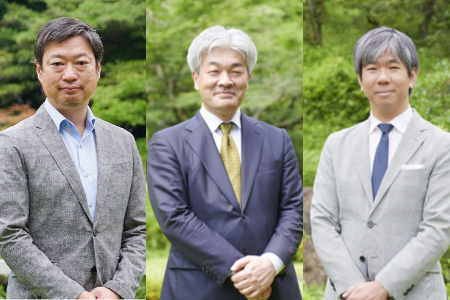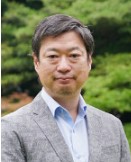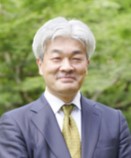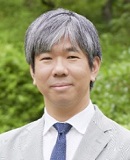“API Geoeconomic Briefing” is a weekly analysis of significant geopolitical and geoeconomic developments that precede the post-pandemic world. The briefing is written by experts at Asia Pacific Initiative (API) and includes an assessment of burgeoning trends in international politics and economics and the possible impact on Japan’s national interests and strategic response. (Editor-in-chief: Dr. HOSOYA Yuichi, Research Director, API; Professor, Faculty of Law, Keio University; Visiting Fellow, Downing College, University of Cambridge)
This article was posted to the Japan Times on August 4, 2022:
API Geoeconomic Briefing

August 4, 2022
What role should Japan play as the Russia-Ukraine war shakes the international order?
|
Managing Director (Representative Director), International House of Japan |
Director, Institute of Geoeconomics (IOG) |
Director, International House of Japan |
KS: In the last two parts, we discussed the characteristics of the Russia-Ukraine war, the role of the United Nations in the international order, deterrence capabilities and the effectiveness of economic sanctions.
In the final part, we would like to discuss Japan’s role and the direction it should head in amid expected changes in the international order after the end of the war. First, I would like to ask Dr. Hosoya, as a historian what do you think about the role of Japan in a historical context.
YH: Japan has a history of being a challenger and a destroyer of international order in the 1930s.
Due to its actions, Japan caused great damage to its neighboring countries as well as suffering a disastrous debacle itself.
Based on such experiences, Japan, after being defeated in World War II, has played a role of defending and supporting the international order.
Therefore, I think Japan’s role is to make Russia understand the demerits of damaging the international order from its own experience, explaining that the move is extremely costly and brings about unfavorable consequences.
KJ: Prime Minister Fumio Kishida said, “Ukraine (today) may be East Asia tomorrow,” pointing out the need to think of the crisis in Europe as our own issue.
It all depends on whether Japan can draw a lesson from the Russia-Ukraine war, strengthen its deterrence capabilities and concentrate its efforts on forming a stable order amid Asia’s difficult strategic environment.
Only a little more than 40 countries joined the move to impose economic sanctions on Russia this time.
This means it is important to also consider how to build a future relationship with many other countries, referred to as the “global south,” which did not join the move.
Although the Russia-Ukraine war has not yet come to an end, I hope Japan will learn a lesson from the war and take an initiative in forming a new governance to build both regional and global order that also include countries which did not invoke sanctions on Russia.
Double standards
KS: From the perspectives of constructing the international order, there are challenges regarding double standards in international law and in forming international public opinion, including the north-south problem and the issue of past colonial rules.
As for the Russia-Ukraine war, there is the issue that attention is only being paid to Ukraine and not Syria and Yemen.
How does this issue of double standards affect the creation of a new international order?
Issues like international justice for Russian violations of international law became important in the latest war, but justice hasn’t been achieved for other military conflicts. Furthermore, globalization undeniably created the gap of wealth between rich and poor countries, and the rich and poor within those countries. What do you think about those double standards and about advanced countries leading the formation of international public opinion?
KJ: In June, Japan was again elected as a nonpermanent member of the U.N. Security Council.
Becoming a member of the council means bearing primary responsibility for the maintenance of international peace and security in official meetings and also in closed, unofficial negotiations.
Because the level of information sharing with the council’s permanent members will go up significantly, Japan can strengthen efforts to maintain international security during its term.
In fact, many of the agendas discussed at the council and mentioned in its resolutions are issues related to the Middle East and Africa, including internal conflicts, peacekeeping and refugees.
In order for Japan to bear its responsibility as a council member, it is necessary to increase awareness within the country of conflicts in various parts of the world.
I think the issue of double standards can be solved if Japan’s level of involvement in global conflicts is raised.
Flawed justice
YH: Looking back at the post-Cold War history, as neoliberalism and globalization spread since the 1990s, the uneven distribution of wealth — as symbolized by GAFA, an acronym referring to tech giants Google, Apple, Facebook and Amazon — seems to have come as far as it could.
Wealth is indeed concentrated on only a handful of people.
Meanwhile, in the war against Iraq, the United States — the world’s most dominant power — did something that distorted international law.
I think that led to a significant decline in trust toward the global community led by Western countries in the 30 years after the end of the Cold War, in both economic and security terms.
On the other hand, Japan, which was the world’s No. 2 economy around the time when the Cold War ended, had been contributing to the global community through providing support to Asian and African nations in the form of official development assistance (ODA) and other means.
However, the amount of ODA has continued to decline since then — although it has increased slightly in recent years — and Japan hasn’t been using enough resources to make active contributions to the rest of the world as it did before.
Under such circumstances, the global community has grown increasingly critical of advanced countries’ double standards.
Many argue that what developed countries are saying is just talk and what they are actually doing is acting only in their own interests, leading to criticism that the countries are hypocritical.
I’m worried that unless we look squarely at the realities of justice in the global community being greatly flawed in the last 30 years, incidents like the Russia-Ukraine war will be repeated.
The Russia-Ukraine war appears to be a clear antithesis of advanced countries’ hypocrisy — malevolence against hypocrisy in other words.
Russia is being defiant, behaving like “what’s wrong with being bad?” And we must seriously acknowledge the fact that countries of the global south are conforming to or overlooking such behavior more than we had imagined.
I believe it will take decades to restore the situation to what it was before, but unless it is restored, we could really enter an era like the time when world wars broke out.
Since Japan is in an extremely important position to restore the situation, it has to work on various issues including recovering a trustful relationship with its Asian neighbors.
KS: It is important to note that there are countries that support Russia and that the values of Western countries do not necessarily match those of the global community.
From the viewpoint of the global south, the Russia-Ukraine war is just a battle between superpowers which brought about sharp rises in crude oil and grain prices. As a result, many countries are suffering from food shortages.
Only condemning Russia and Russian President Vladimir Putin will not make the global community happy.
Some countries believe Western countries’ sanctions should be blamed.
I think it is important to recognize this in forming a new international order. Japan is being put to the test of whether it can suggest new values and ideas that could convince the global community, including not only Western countries, but also the global south.
Policy alternatives
KS: Since we are having this discussion to commemorate the 10th anniversary of the Asia Pacific Initiative, let’s talk about the role of think tanks.
Maybe the situation could have changed and Russia could have avoided taking actions based on an optimistic outlook if it had think tanks like those in the U.S. or the United Kingdom.
In the first of this series, we mentioned that most of the think tanks in Japan are government-affiliated. What do you think is necessary to nurture nongovernmental bipartisan think tanks in Japan, like those in the U.S. or the U.K.?
KJ: This is a politically sensitive issue, but think tanks have a role to play in a society where there is a change of government on a regular basis. This is because such a society needs policy alternatives.
When one political party maintains power for a long period of time, most decisions are concluded through negotiations between the party and administrative bureaucracies and it becomes difficult for policy dynamism with participation of diverse stakeholders to work.
If people think conceptual power is necessary to create a better world and a better Japan, and if there is a situation where there are a number of policy alternatives which can be chosen by the people, think tanks’ roles of forming ideas within the private sector outside the bureaucratic system will be taken more seriously and realistically.
Just like in the U.S. with the revolving-door practice where most government positions are replaced with new people at the time of a change of government, I think changes of government should take place more frequently in Japan, adopting a healthy revolving door. And it is desirable that think tanks be positioned in such a system.
Negative feedback
YH: I think there are several roles think tanks can play, and one of them is to present policies and reviews that hit the government’s sore spot — the kind of proposals that the government wants to hear although they might make it feel uncomfortable.
As we teach students at universities, we feel suspicious if students compliment us all the time, but we feel discouraged if they are always criticizing us. It is important to criticize with kindness.
In order for think tanks to play their roles, it is necessary to nurture the culture of policy reviews in Japan.
I am aware that think tanks have the responsibility to present high-quality reviews — the kind of reviews that make people in the government and at the center of policymaking definitely want to hear them in order to put together better policies.
Think tanks’ reviews must not be unconditional praises or criticisms just for the sake of criticisms. The reviews must give high marks to good policies, while strictly criticizing problematic policies and present alternatives.
KS: In a situation where Kasumigaseki (Japanese bureaucracy) is regarded as the most powerful think tank, proposals and arguments made by nongovernmental think tanks are often criticized as a pie in the sky, not taking into account the realities of the situation. But I don’t think that is true.
I think our role is to continue presenting alternatives to government policies — “criticisms with kindness” in the words of Dr. Hosoya and “constructive opinions” to put it my way.
Now let us discuss how we hope the API is going to change, as it was merged with the International House of Japan (IHJ), based in Tokyo’s Roppongi district, on July 1.
Think tank culture
KJ: I was very surprised to hear the news. At the same time, it prompted me to think about the history of think tanks around the world.
In the U.K., there is the Royal Institute of International Affairs, an independent policy institute known as Chatham House.
It was established after British diplomat Lionel Curtis advocated the creation of an institute for the study of international affairs on the sidelines of the 1919 Paris Peace Conference following the end of World War I. It was aimed at thinking about U.K. diplomatic policies and offering solutions to global challenges.
The institute made a leap forward in its early years when a philanthropist couple purchased Chatham House, located in St. James’s Square in London, and donated the building to be used as the institute’s headquarters.
Active intellectual exchanges were held in the building, leading to the creation of the Chatham House Rule, which came to serve as the foundation of such exchanges conducted today.
The rule reads as follows: “When a meeting, or part thereof, is held under the Chatham House Rule, participants are free to use the information received, but neither the identity nor the affiliation of the speaker(s), nor that of any other participant, may be revealed.”
Through the confirmation of this rule, the culture of conducting active policy debate was nurtured.
I think the location played a major role in bringing up the culture.
There are many think tanks — not only in the U.K. but also in other Western countries, including the Netherlands — that own a vast piece of land and property.
The history of the IHJ also cannot be told without mentioning its building being in a tranquil environment with a graceful Japanese garden.
I think the latest merger is offering the greatest opportunity to create a new think tank culture in Japan cultivated in a symbolic building, just like the one nurtured at Chatham House.
YH: Because of my profession, I have the chance to attend many international conferences.
I have strong memories of the buildings where those conferences were held. This means when you remember something, it is often symbolized by buildings.
In this sense, I think there is a symbolic meaning in the API merging with the IHJ, an organization integrated with a building.
I want to take this opportunity to create a culture of the common room.
A common room is a shared lounge where many people gather and debate freely over a cup of tea.
It will be open to people who are members. I hope to create a culture in which experts from various fields become members and exchange ideas, deepening high-quality discussions through synergy.
I expect the IHJ will be used as such a space.
Getting the message across
KS: I have expectations for the IHJ’s ability to communicate with the rest of the world.
The think tank culture mentioned by the two of you is more of something adopted in the U.K. and other European countries, but I want to learn also from the culture of U.S. think tanks — that culture being a focus on openness and the dissemination of ideas.
The IHJ, with 70 years of history as an international exchange organization, is a perfect platform for dissemination.
Deepening discussions among members in a common room is certainly significant, but such discussions are too good to be kept only within ourselves. We should actively promote our views.
This is why I had high expectations for the API’s merger with the IHJ which has the ability to get our message across.
The API will have discussions with experts in various areas, present alternative policies and proposals to the government and the public and work actively to convey the ideas to the rest of the world. I hope everyone will look forward to it.
Disclaimer: The views expressed in this API Geoeconomic Briefing do not necessarily reflect those of the API, the API Institute of Geoeconomic Studies or any other organizations to which the author belongs.
 APIニュースレター 登録
APIニュースレター 登録

